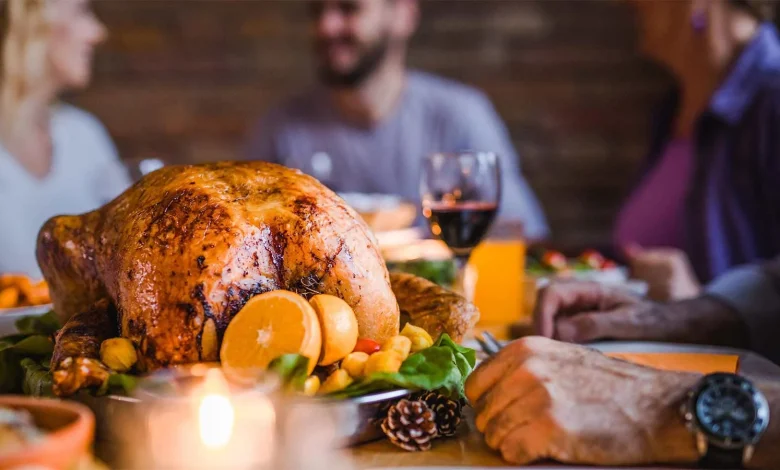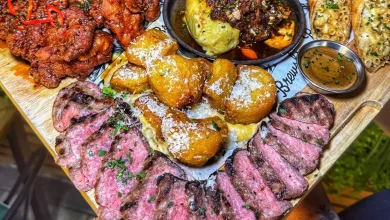Thanksgiving Day 2025: Traditions, Changes, and Controversies Across America

Quick Read
- Thanksgiving Day 2025 falls on Thursday, November 27.
- Political and economic pressures are leading some Americans to reconsider traditional celebrations.
- Cities like Orlando are closing municipal offices and altering service schedules for the holiday.
- In Idaho, local media jokes about skipping Thanksgiving altogether amid shifting attitudes.
- Pet safety is a growing concern, with advice against sharing table scraps with dogs.
Thanksgiving 2025: A Tradition Under Scrutiny
For generations, Thanksgiving Day has marked a time for Americans to gather around tables, share a meal, and reflect on gratitude. But as the holiday approaches in 2025, cracks are showing in the nation’s cherished tradition. Political unrest, economic uncertainty, and shifting cultural perspectives are prompting some to question whether Thanksgiving still holds the same place in the national calendar—or even in their own homes.
Take Idaho, for example, where local media like 103.5 KISS FM Boise recently posed a provocative question: Is Idaho skipping Thanksgiving in 2025? While the headline is partly tongue-in-cheek, it taps into a real current of skepticism. Residents are voicing doubts about the holiday’s relevance, pointing to rising costs for everything from groceries to seasonal decor. “Who even has time for Thanksgiving?” the article asks, echoing the sentiment of many juggling busy lives and tight budgets.
Economic Pressures Change the Table
One of the most tangible impacts on Thanksgiving in 2025 is economic. Inflation has hit households hard, and the price of classic Thanksgiving staples—from turkey to pumpkin pie—has climbed higher than many remember. For some families, the financial strain means scaling back festivities or reimagining what a holiday meal looks like. Others are considering skipping the holiday altogether, choosing instead to focus resources on the winter holidays that follow.
It’s not just Idaho feeling the pinch. Across the country, cities are adjusting their operations to accommodate the holiday. In Orlando, for instance, City Hall and all city offices will close on Thursday, November 27, and Friday, November 28. Residential recycling and yard waste collections will be postponed, highlighting how even municipal services bend to the rhythms of Thanksgiving. For many, these changes are a practical reminder of how the holiday continues to shape daily life—even as its meaning evolves.
Rethinking Traditions: From the Dinner Table to the Dog Bowl
Beyond economics, Americans are reconsidering the customs that define Thanksgiving. In Idaho, playful lists of “banned” items at the dinner table—like politics, shoes, and personal sauce packets—underscore a desire for harmony amid division. For some, it’s an attempt to shield the holiday from contentious debates that dominate headlines and social media feeds.
And it’s not just humans who are affected. Pet safety has become a growing concern, as families are reminded to keep certain foods away from dogs during the festivities. Advice from local outlets cautions against sharing table scraps, urging pet owners to avoid ingredients that might harm their four-legged friends. It’s a small but telling example of how Thanksgiving traditions are adapting to modern life.
Controversy and Conversation: The Meaning of Thanksgiving
Underlying these practical concerns is a deeper conversation about what Thanksgiving represents. For some, the holiday’s origins are complicated, and perspectives shift as people age or learn more about its history. Debates over the celebration’s meaning—especially in light of the country’s complex relationship with its past—are sparking new questions. Is Thanksgiving a time for gratitude and togetherness, or does it serve as a reminder of uncomfortable truths?
Increasingly, Americans are carving out their own answers. Some choose to celebrate with family, holding fast to tradition. Others opt for alternatives, skipping the feast in favor of other activities or even fast-forwarding straight to Christmas. In the end, the question isn’t whether Idaho, or any other state, is “skipping” Thanksgiving—it’s how people are choosing to observe it, and what those choices say about the evolving American story.
In cities like Orlando, the closure of government offices is a matter of logistics. But in living rooms and kitchens across the country, Thanksgiving is a canvas for personal expression, negotiation, and reflection.
As Thanksgiving Day 2025 unfolds, the diversity of responses—ranging from playful local debates to serious personal decisions—reveals a nation in transition. The holiday’s core themes of gratitude and connection remain, but the ways in which Americans engage with those ideas are shifting. Whether by scaling back, reimagining traditions, or questioning history, Thanksgiving this year is less about uniform celebration and more about individual choice.





